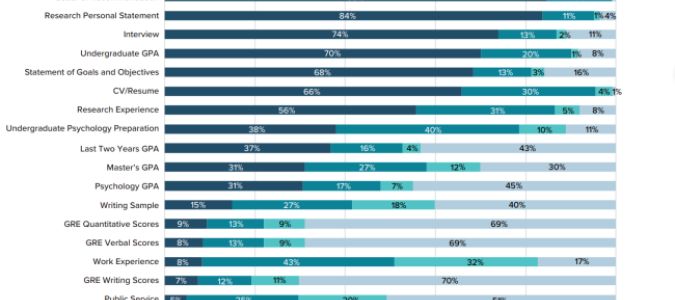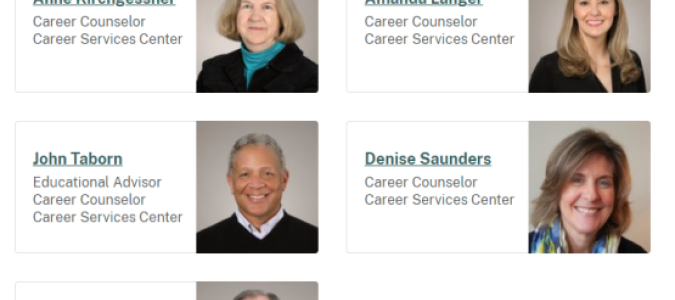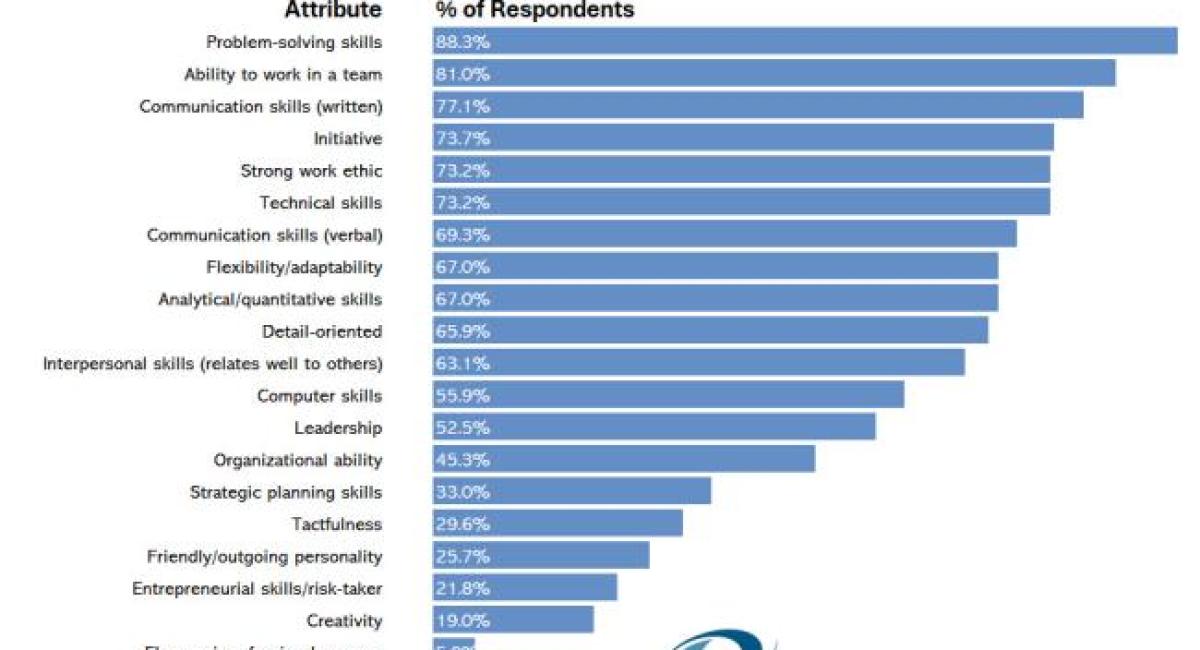The concept of a Highly Sensitive Person (HSP) was introduced by psychologist Elaine Aron. HSPs exhibit a trait known as sensory-processing sensitivity (SPS), characterized by heightened emotional sensitivity, stronger reactions to stimuli like pain, hunger, light, and noise, and a rich inner life. While this may superficially resemble sensory processing disorder (SPD), Aron clarifies that HSPs do not have SPD.

Changing Admission Criteria for Graduate Psychology Programs
According to an article in the American Psychological Association (APA), graduate psychology degree program have shifted their admission criteria over the last few years. This is applicable to both master’s and doctoral level program.

"The Good Enough Job": Finding Balance and Satisfaction
In Simone Stolzoff's "The Good Enough Job," the author explores a refreshing perspective on work that challenges the pervasive "dream job" narrative. The key takeaway is the concept of the "good enough job," which advocates for a balanced approach to professional life, emphasizing satisfaction, personal fulfillment, and mental well-being over the relentless pursuit of an idealized career.

The Emotional Contagion Effect at Work – How it Impacts Burnout
If you've ever worked with a toxic colleague or boss, you know the toll it can take both personally and professionally. The term "toxic" is used frequently, and for good reason. A Harvard Business School (HBS) study describes toxic workers as those engaging in harmful behavior towards an organization's property or people. In extreme cases, they can cause financial losses and harm employees. Even moderate levels of toxic behavior can lead to customer loss, decreased employee morale, increased turnover, and loss of legitimacy among stakeholders.

Navigating Your Scientific Career: A Guide to Effective Career Planning
Embarking on a scientific career is an exhilarating journey filled with discovery, innovation, and the pursuit of knowledge. However, without a well-defined career plan, it's easy to feel overwhelmed by the numerous possibilities and challenges. Effective career planning is essential for scientists to achieve professional success and personal fulfillment. This blog post will guide you through the crucial steps of career planning, focusing on assessing your skills, values, and interests, and the importance of introspection.
Self-Assessment Part 1: Identifying Your Skills

Not Sure of Your Next Step After NIH? OITE Career Services Can Help
Get to Know Your Free NIH OITE Career Counseling Resources
Whether you're a postbac, graduate student, or postdoc at NIH, the Office of Intramural Training & Education (OITE) offers a wealth of free career services to help you thrive professionally.
The NIH Office of Intramural Training & Education (OITE) Career Services Office offers both Career Counseling and Educational Advising to trainees at the NIH.
Career Counseling

How To Pivot With Purpose
Career pivots are becoming increasingly common. 52% of Gen Z’ers and Millennials have reported making a career pivot and they are more likely to do so than previous generations. While career pivots are becoming the norm, they are still very unsettling on a personal level. Often changing career paths means entering the unknown to hopefully pursue a more fulfilling life and use of your energy and skill sets.

7 Essential Questions to Ask Before Accepting a New Job
When you're in the throes of an interview for a new job, it's natural to focus on selling yourself and your skills. However, it's equally important to ensure that the company aligns with your professional goals and overall happiness. After all, you'll be dedicating a significant portion of your time to this job, so it's vital to ascertain if it's the right fit for you. To aid in this decision-making process, we've compiled a list of seven crucial questions to ask about a potential new job.
1. What are your expectations for this role?

Finding Your Cultural Fit
You’ve been offered an interview with a lab or an organization. As you prepare for the interview, remember to consider cultural fit in your evaluation.

The Waiting Season - How to Cope
Waiting for news about our future, whether that be about grad or med school, a new job, or a health diagnosis, can be hard to tolerate. With it often comes feelings of anxiety, fear of the unknown, or worry about potential news we’re not hoping for. These feelings are often intense and highly uncomfortable so we can find ourselves coping with them by distracting, numbing, avoiding, or constantly checking our devices for any new information that may have come in the last few minutes. This can sometimes feel like a new-found anxiety.





